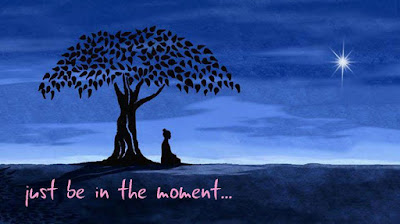Mindfulness, a tool for the creation of human rights defenders
Mindful meditation connects humans deeply to themselves, to each other, and to life
Enough examples can show how mindfulness can cause individual and small group changes; but the question is: can you transform societies and build up populations completely committed to respect human rights? The answer is yes, according to PhD Maria Cheung, Professor at the University of Manitoba in Winnipeg, Canada.
 We found on the web an interesting article published in a journal by that university entitled: “The intersection between mindfulness and human rights: The case of Falun Gong and its implications for social work.”
We found on the web an interesting article published in a journal by that university entitled: “The intersection between mindfulness and human rights: The case of Falun Gong and its implications for social work.”
Professor Cheung, in addition to a rigorous bibliographic review, gathered the experience of Canadians who for years have practiced or are immersed in the knowledge of Falun Gong, and their reaction towards the fact of being discriminated by the Chinese government because in the late 90’s of last century they were seen as a threat merely because of having more followers than the Communist Party of that country: between 70 million and 100 million Chinese people.
Beijing authorities launched a global campaign against Falun Gong practitioners, but the response of those affected was not retaliation or hatred, but meditation ended up becoming a mode of peaceful and civil resistance that continues to gain more adherents not only in China and that in the Western world is creating active defenders and protectors of human rights.
“The development of greater self-awareness and self-regulation from mindfulness awakens a new mode of knowing and changes in thoughts and feelings are experienced,” says Cheung in her paper released in early 2016. Later, she comments: “Meditative practice can help integrate personal, collective and social transformation to uphold justice and to protect the human rights of all people of faith; and it importantly engages peaceful resistance.”
Something extra we like very much in the conclusions of Cheung is: those who follow mindfulness engage in greater social activism in contrast to those who refuse to accept the existence of benefits and gains in satisfaction for those who engage in a type of meditation.
She found three important lessons that can be learned: a) nondualistic relationship between the inner self and social transformation; b) compassionate awareness developed in mindfulness leads to praxis; and c) compassionate mindfulness brings collective empowerment, resilience and hope, or the ability to adapt to the positive or overcome traumatic circumstances and ultimately have permanent attitude of hope in life.
“Revisiting the Buddhist philosophical basis from which mindfulness originates, the Falun Gong experiences enlighten with a holistic approach to peace and justice. Mindful meditation connects humans deeply to themselves, to each other, and to life,” says the researcher from the province of Manitoba. “The Falun Gong experience illuminates a global peace praxis that harmonizes the integration of personal, collective and social transformation through mindful meditative practice,” she added.
Therefore, nowadays with outstanding examples of how the world advances towards a society more respectful of the human rights, the fact that mindfulness can create new citizens builders of these rights leaves no room but to the conviction that the future is hopeful.
Read the original here: https://medium.com/@morisberachawuani/mindfulness-a-tool-for-the-creation-of-human-rights-defenders-c54e088dc893



Comments
Post a Comment